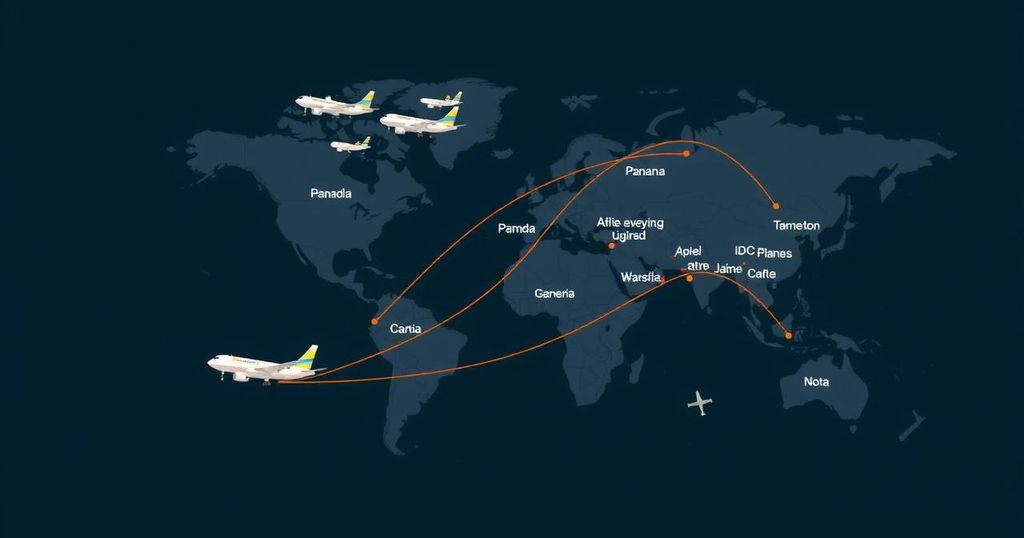Panama Expands Deportation Flights to Ecuador, India, and China
On Thursday, the government of Panama proclaimed an expansion of its deportation flights aimed at migrants apprehended within its borders, targeting individuals bound for Ecuador, India, and China. This initiative is part of a broader strategy to curtail the ongoing influx of predominantly U.S.-bound migrants.
President Jose Mulino, who recently assumed office and campaigned on a commitment to mitigate his country’s role as a significant transit hub for migrants, delivered this announcement in a press conference held weekly. The initiation of these flights is reportedly funded by the United States government, with the first transportation of Colombian migrants having commenced earlier this week.
The timing of this policy is particularly noteworthy as it precedes the upcoming U.S. presidential election scheduled for November, during which immigration issues are anticipated to be a focal point of discussion. Over the years, numerous migrants from South America and beyond have bravely traversed the perilous Darien Gap, a treacherous jungle path linking Colombia to Panama in their quest to reach the United States.
President Mulino refrained from addressing the legal status of the migrants slated for deportation to Ecuador, India, or China, nor did he disclose whether these individuals possess any criminal records. He specified that flights to Ecuador are set to occur on August 29, followed by flights to Colombia on August 30, and to India on September 3. Furthermore, he mentioned that additional flights to Colombia would be organized between August 24 and August 30, while details regarding the frequency and scheduling of flights to China remain unspecified.
In conclusion, this renewed focus on deportation flights highlights Panama’s evolving immigration policies under President Mulino’s administration and underscores the government’s efforts to reposition the nation away from its current status as a significant migrant transit zone. This development warrants monitoring as it occurs in close proximity to heightened concerns regarding immigration policies in the United States.








Post Comment